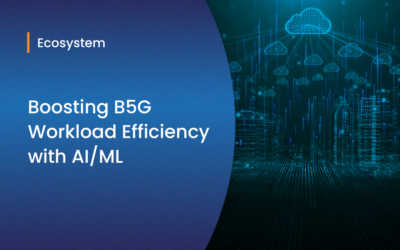Modular 6G Experimentation Across Europe
Following an “Infrastructure as a Code” approach, OpenNebula has been the cloud infrastructure management solution for a modular experimentation ecosystem spanning across four distinct locations in Europe to support the technology and research validation processes needed in the pathway towards 6G.
OpenNebula relies on libvirt, recommending the usage of the KVM (Kernel-based Virtual Machines) hypervisor, providing resource control (authorization/authentication/accounting) via ACLs (Access Control Lists) and POSIX (Portable Operating System Interface) rules, with several authentication methods, frontend high availability, and an XML-RPC (Extensible Markup Language Remote Procedure Call) interface that can be used to communicate with various other network elements.
The four deployed platforms are tailored to specific experimental scenarios, demanding a versatile and highly adaptable infrastructure. OpenNebula has been crucial in meeting these demands by being the main infrastructure manager for running the virtualized workloads and implicitly providing a unified framework for resource management, virtualization, and the integration of cloud-native technologies.
A Framework for 5G/6G Innovation
OpenNebula’s flexibility and modularity have accelerated development and experimentation timelines across all platforms and has a pivotal role as the project’s infrastructure manager facilitating access to the 6G Library utilized to create the Trial Networks (TN) and to perform the vital trial network lifecycle management.
Trial Networks are fully manageable, configurable and controlled end-to-end networks that combine 5G/6G hardware and software while they utilize additional tools for automated experiments. The management layer of these TN includes the TNLCM (Trial Network Lifecycle Manager), several components of the 6G-Library, the expanded services of OpenNebula, and the API framework. The TNLCM is the orchestrator in charge of deploying each of the components and managing the lifecycle of the Trial Network itself.
Each component of the 6G Library is designed to be defined completely through declarative files, only as code, and each of them is completely self-contained, so that it can have a lifecycle.
For the first release of the TNLCM, OpenNebula was enhanced to include Trial Network support. In this sense, OpenNebula has further improved relevant components for resource and network management and automation.
Key Innovation and Tools
- OneDeploy is a set of Ansible playbooks that automate the deployment of OpenNebula infrastructure allowing a full deployment of a High-Availability (HA) cluster and declaring all the necessary nodes and networks.
- Scaphandre is a software that allows fetching granular power measurement of the RAPL (Running Average Power Limit) extensions. This was integrated to obtain power metrics for the running VMs. Also, the build system for supported images and context packages (one-apps) was enriched.
- Multus and Calico, two Container Network Interfaces, to improve the air-gaping of Kubernetes to speed up deployments.
- Terraform has been refined and extended to provision and configure all the resources required by the trail network.
In each experimentation platform, compute infrastructures have been set, using as multi-hypervisor solution the OpenNebula approach. The target for these labs is to have components that are infrastructure agnostic and extensible, but specifically tailored for the usage of OpenNebula as infrastructure manager.
OpenNebula ensures a secure and sustainable network management and orchestration of various infrastructure types in those four labs, becoming part of the concept of Trial Networks and of the offer to third parties automated experimentation capabilities through a rich and extensible toolbox.
Use Cases in Europe
- Malaga
This platform focuses on low-latency applications for smart urban environments. OpenNebula has facilitated the creation of virtual environments with software-defined networks (SDN) and integration with existing 5G technologies, enabling the simulation and testing of applications such as autonomous vehicles and traffic management. OpenNebula has optimized resource usage on this platform, ensuring high availability and scalability.

- Berlin
This platform is focused on massive IoT connectivity services, leveraging OpenNebula to manage large volumes of devices and connections. Its ability to automate resource provisioning has been crucial for efficiently handling dense scenarios, reducing testing implementation times, and improving system responsiveness. - Athens
This platform is designed to test advanced telecommunications and industrial connectivity scenarios. OpenNebula plays a vital role in managing virtual environments and integrating heterogeneous systems, enabling the testing of advanced networks and critical services. Furthermore, OpenNebula’s ability to orchestrate resources in real-time has been essential for industrial connectivity and private network scenarios. - Oulu
This platform focuses on AI-driven applications and machine learning for autonomous networks. OpenNebula has enabled the efficient deployment of complex simulation environments, ensuring optimal performance for compute-intensive tasks. Its hybrid architecture facilitates integration with public cloud services when necessary.
Conclusions
A key common element for all four platforms is the strategic role of OpenNebula, the open source cloud orchestration solution that has proven essential for fostering a more open and interoperable 6G ecosystem and for efficiently managing resources across the four platforms deployed throughout the European Union.
Using OpenNebula has enabled efficient resource management and a sustainable approach by reducing energy consumption and driving infrastructure optimization. Its compatibility with emerging technologies such as cloud-edge continuum, and its ability to integrate heterogeneous hardware have proven critical in such a demanding and diverse environment.
Users can benefit from OpenNebula’s improvements emerging from these activities as part of the main distribution. By leveraging this rich ecosystem, OpenNebula has enhanced some of its main pillars to enable the 6G-ready Trial Networks: monitoring, stability, usability, marketplace, OneKE distribution and the Terraform provider.

Funded by the European Union’s Horizon Europe research and Innovation Programme, Smart Networks and Services Joint Undertaking (SNS JU) through the 6GSANDBOX Project: Supporting Architectural and Technological Network Evolutions through an Intelligent Secured and Twinning-enabled Open Experimentation Facility (Grant Agreement 101096328)




0 Comments